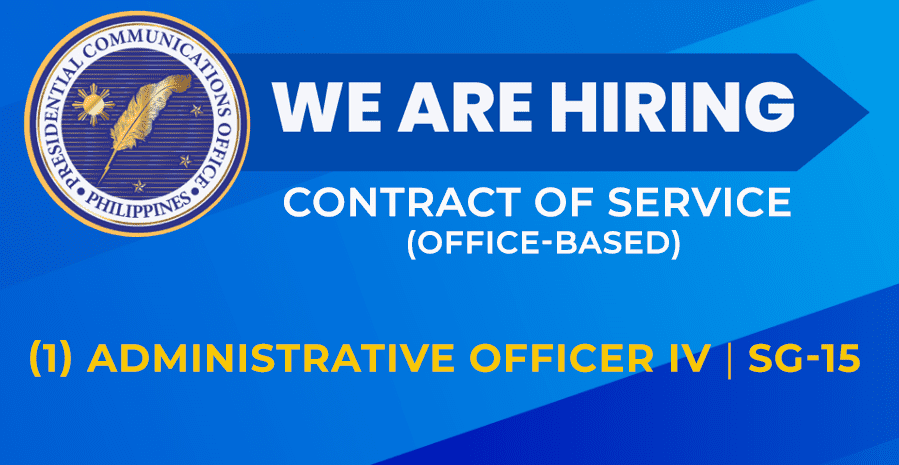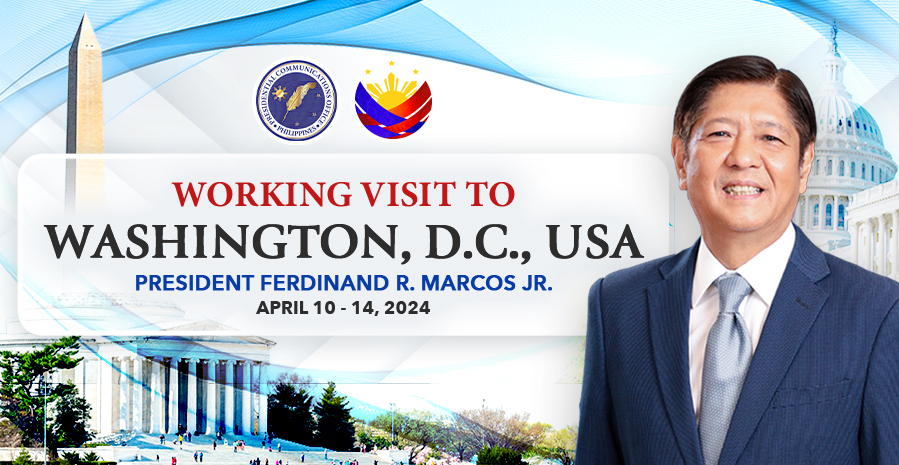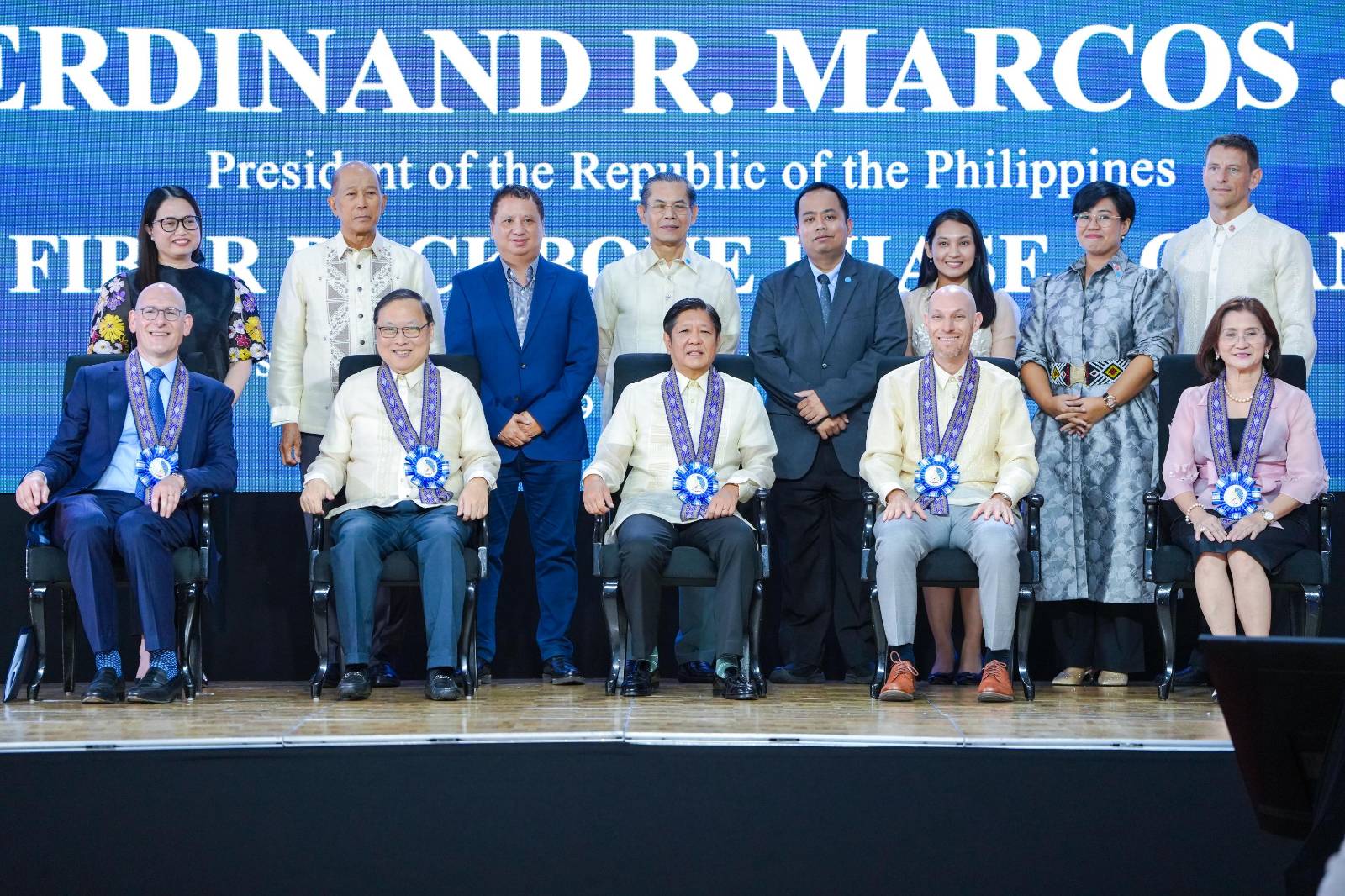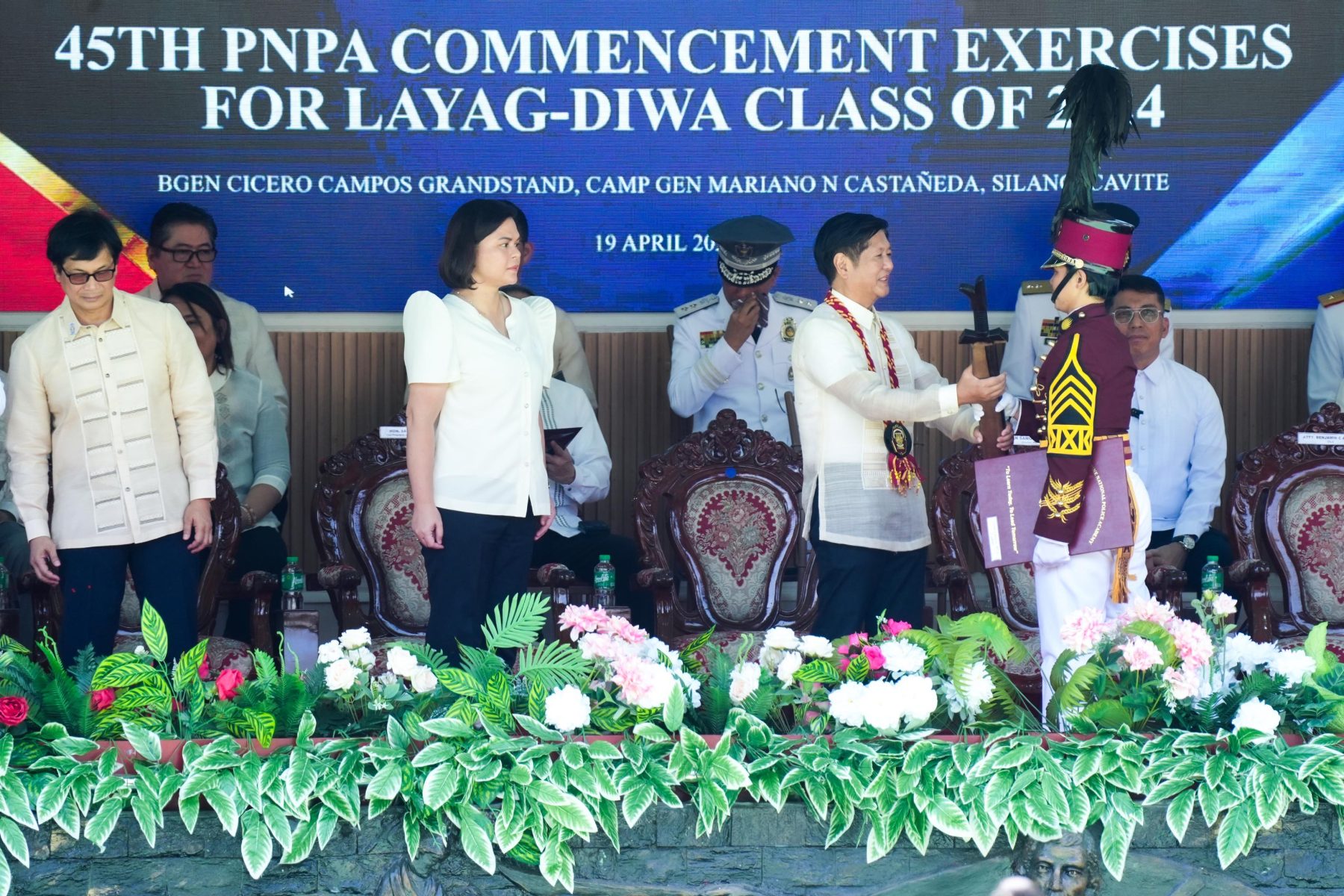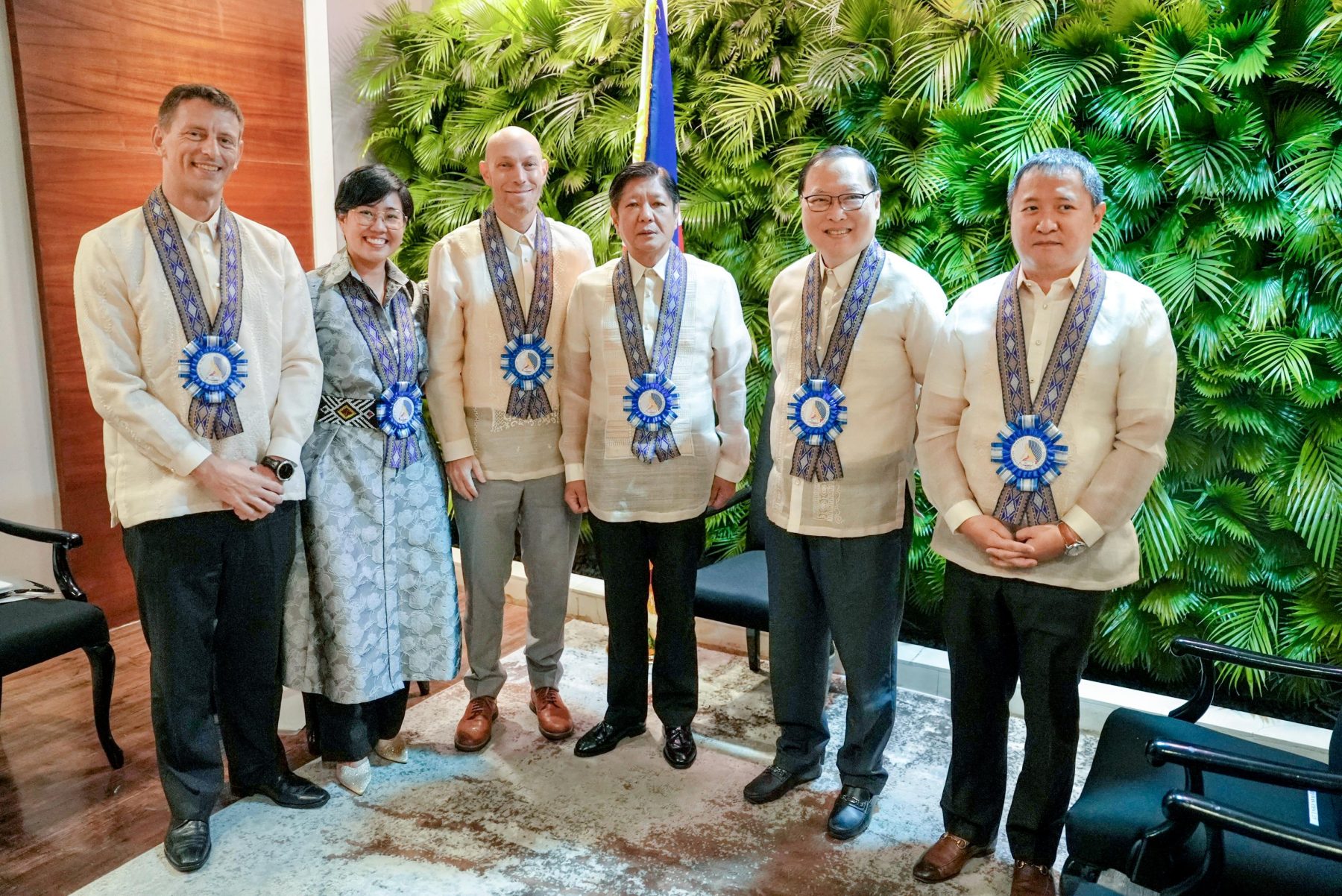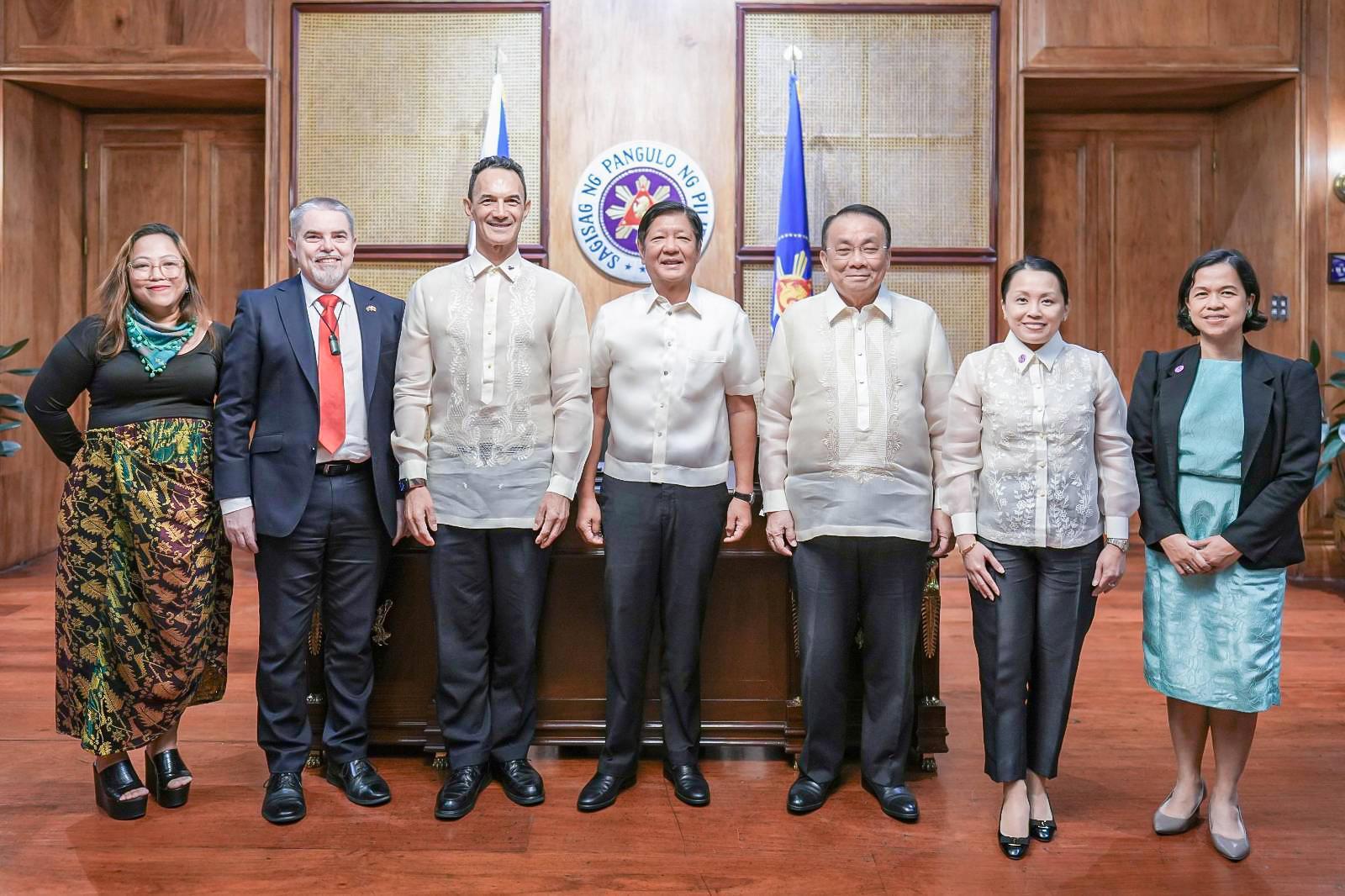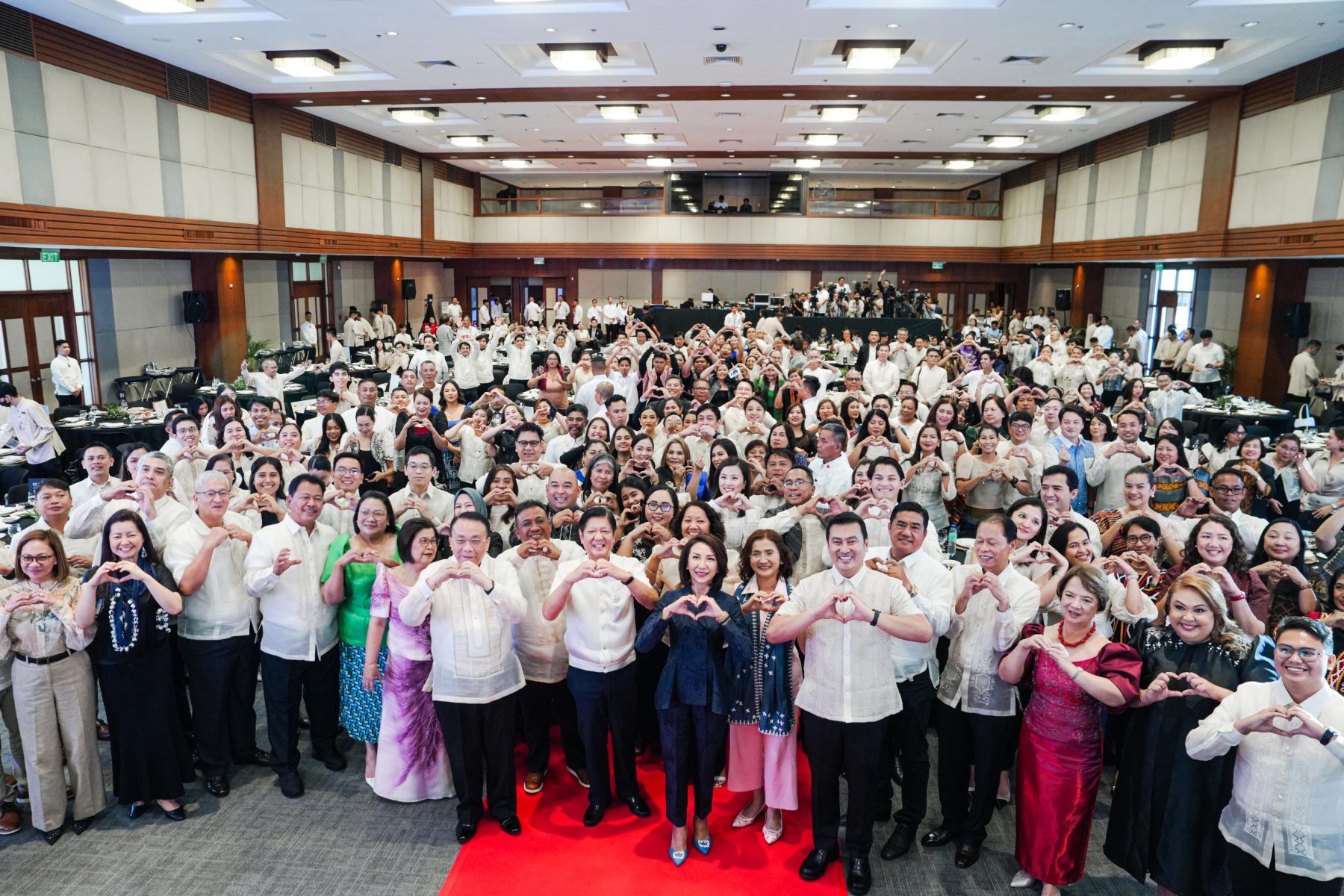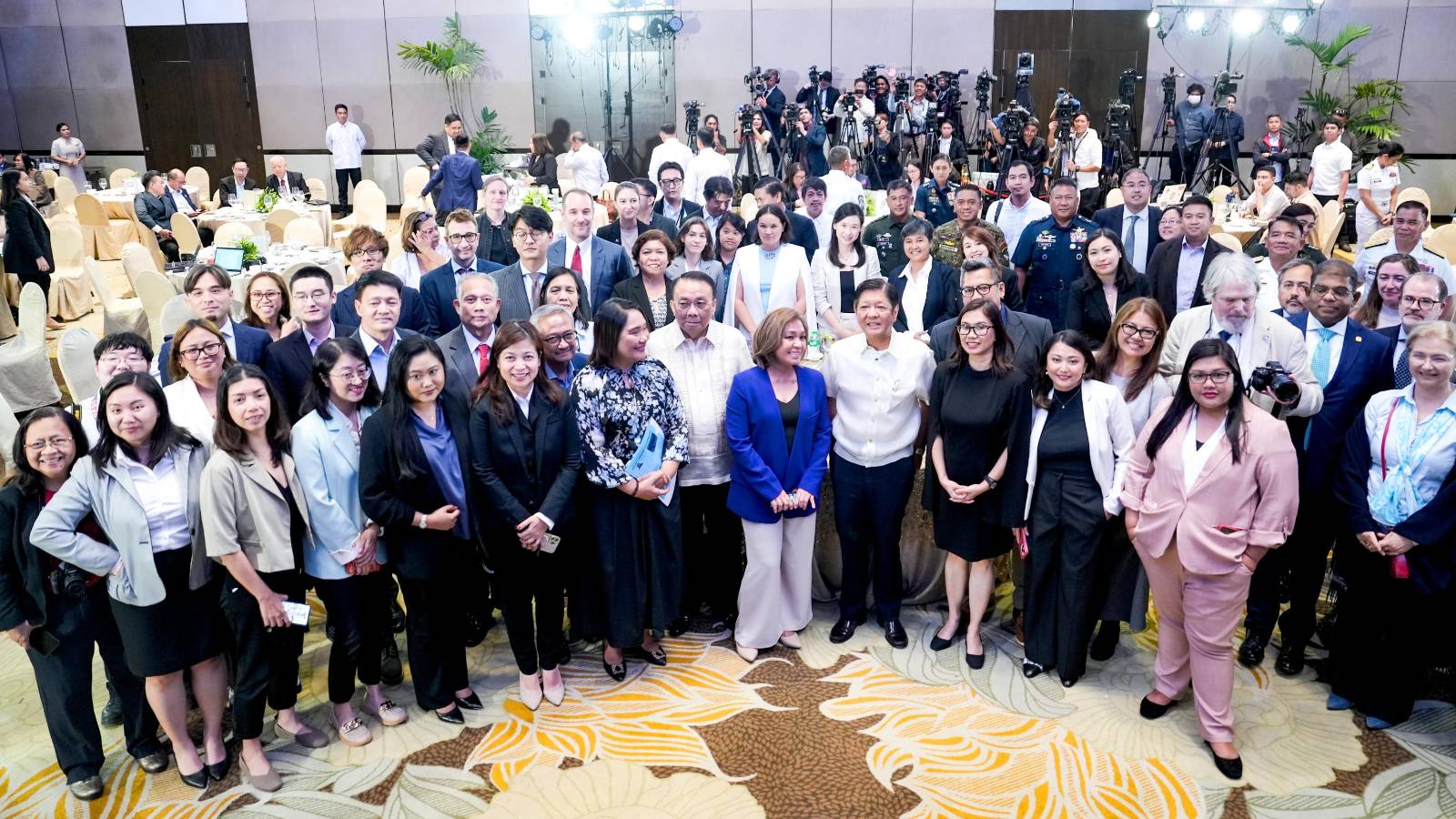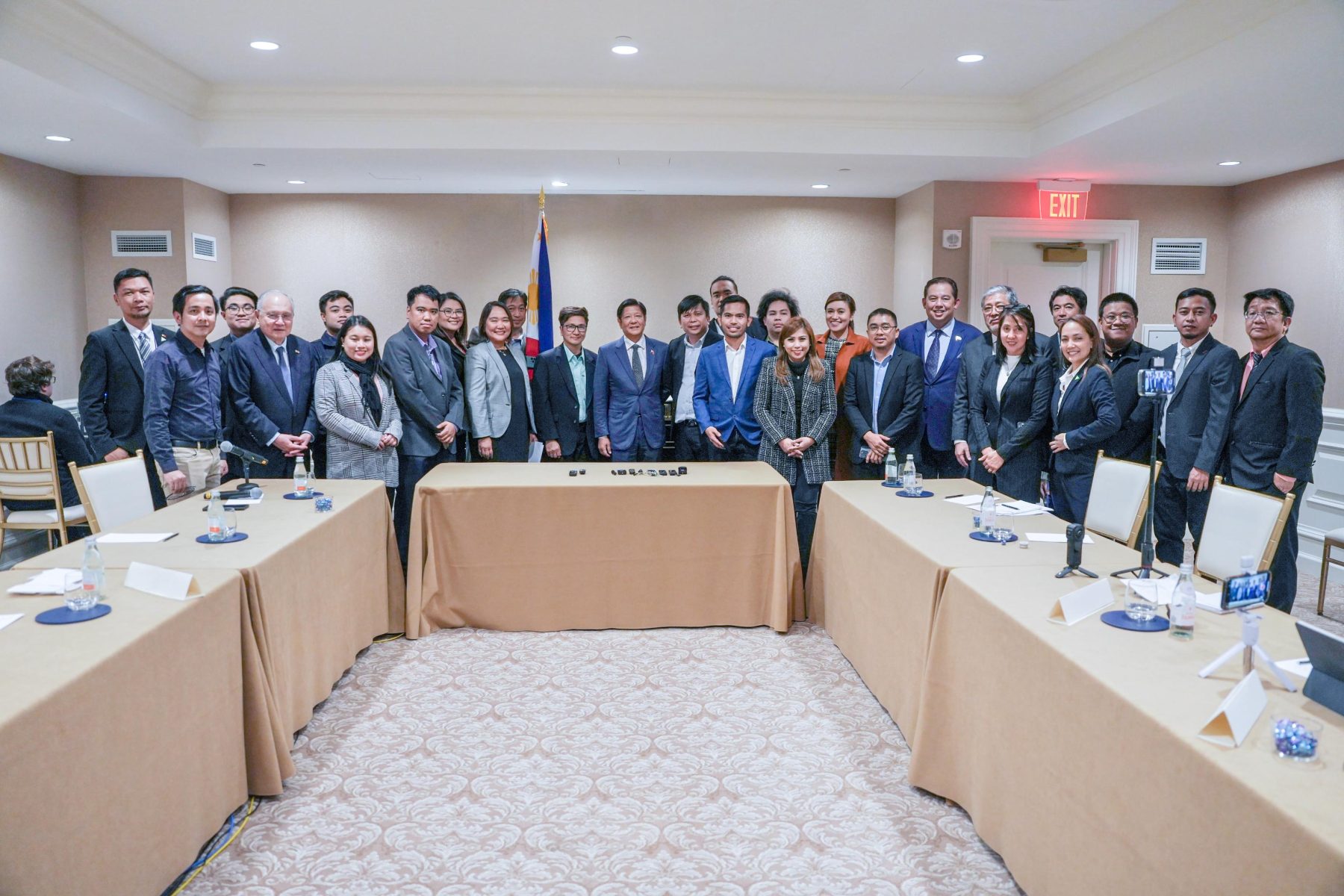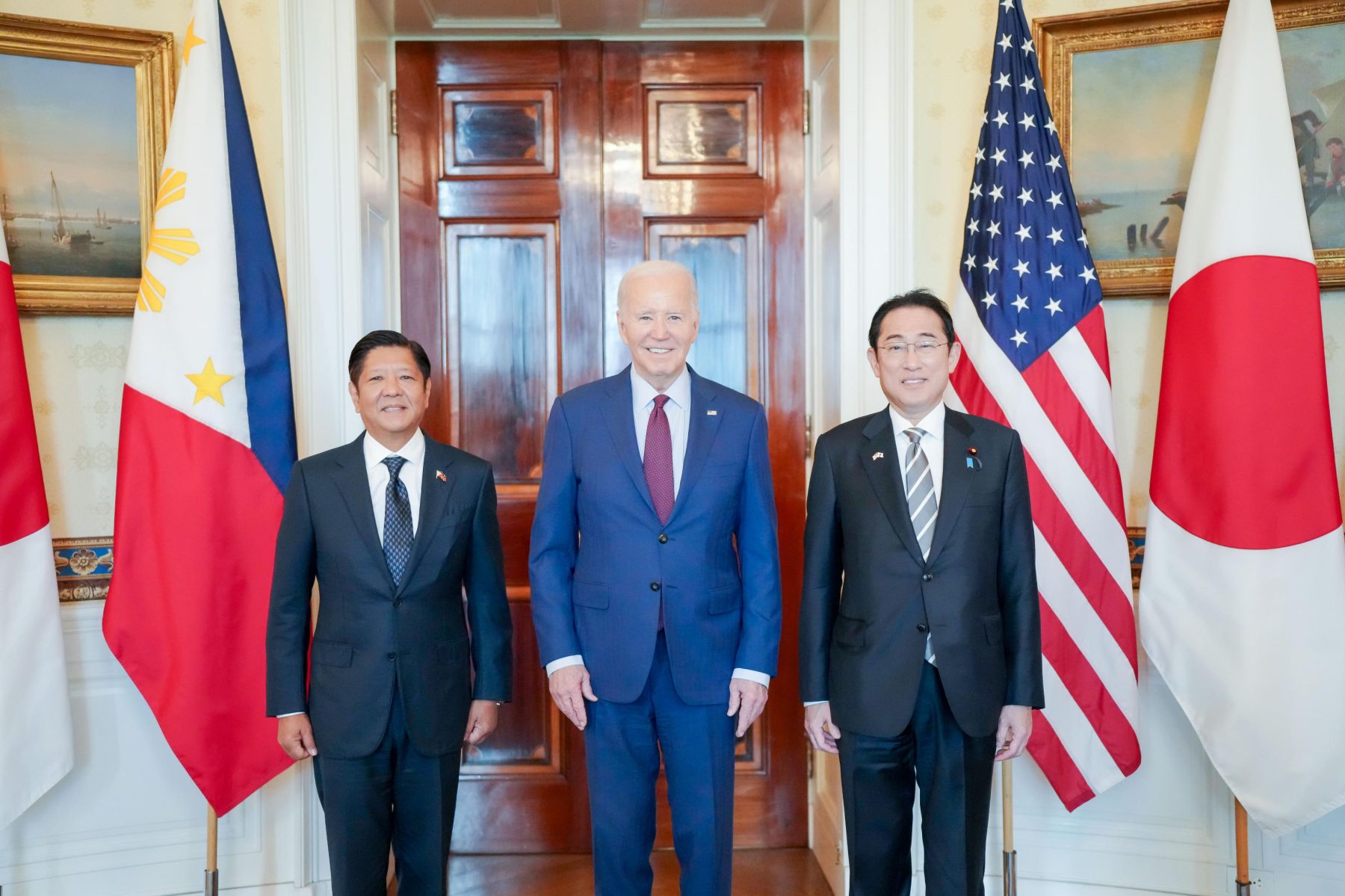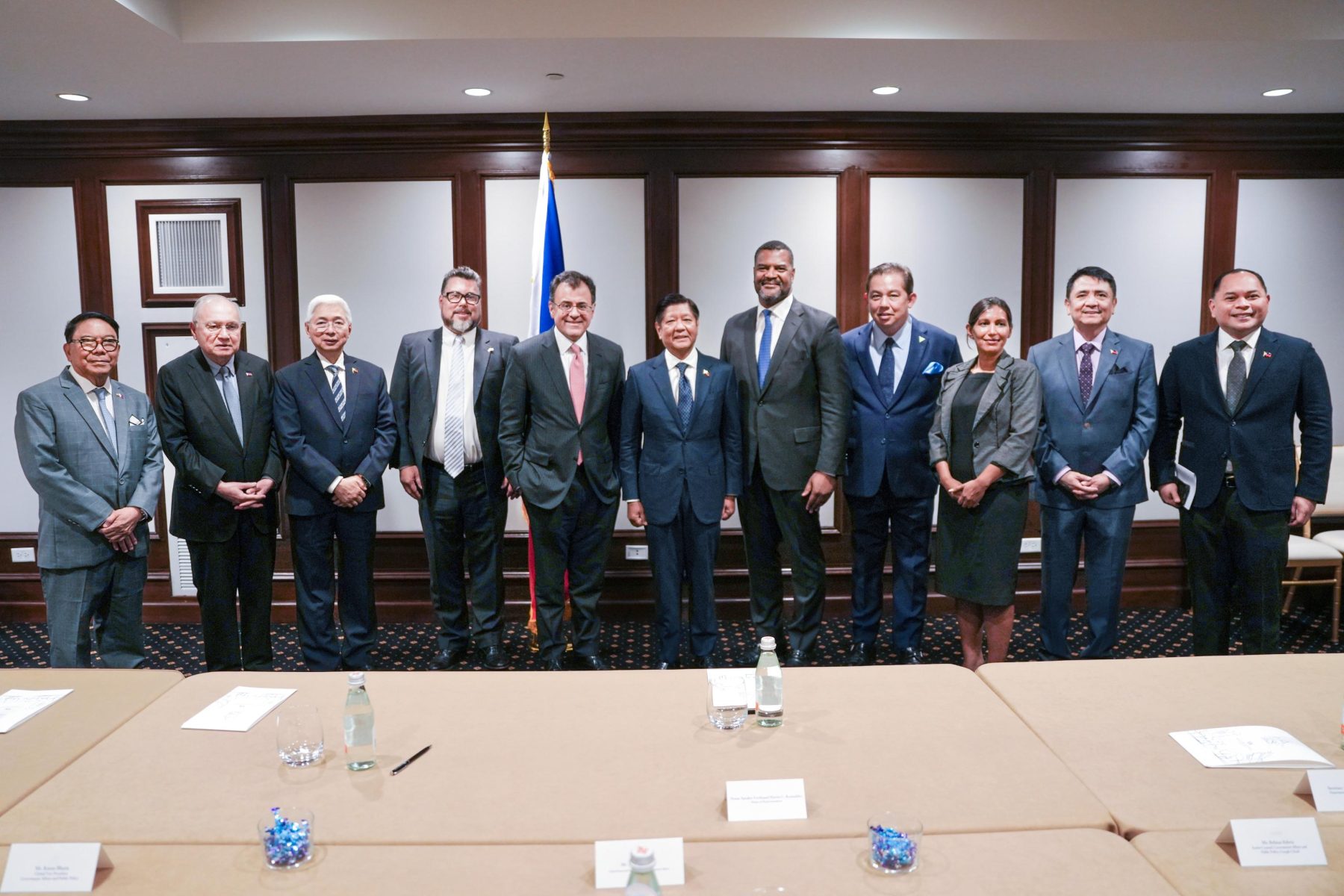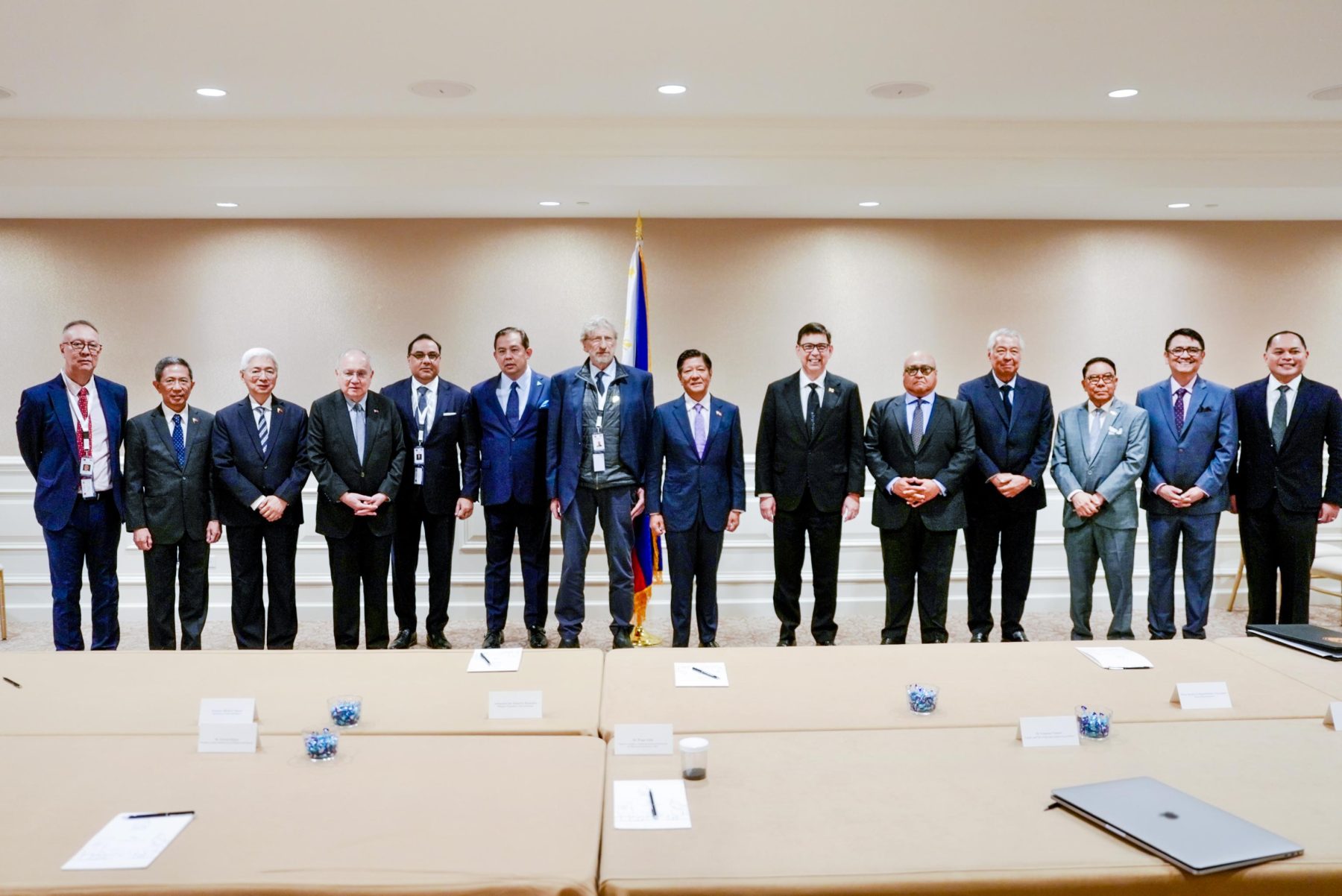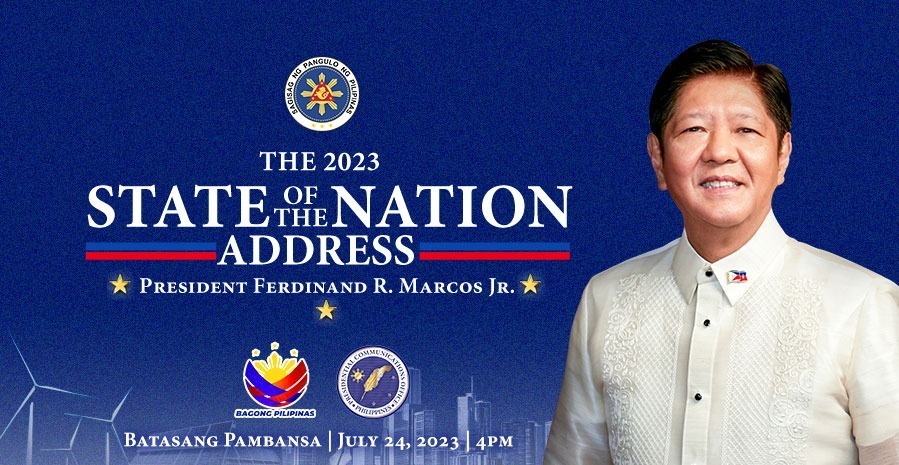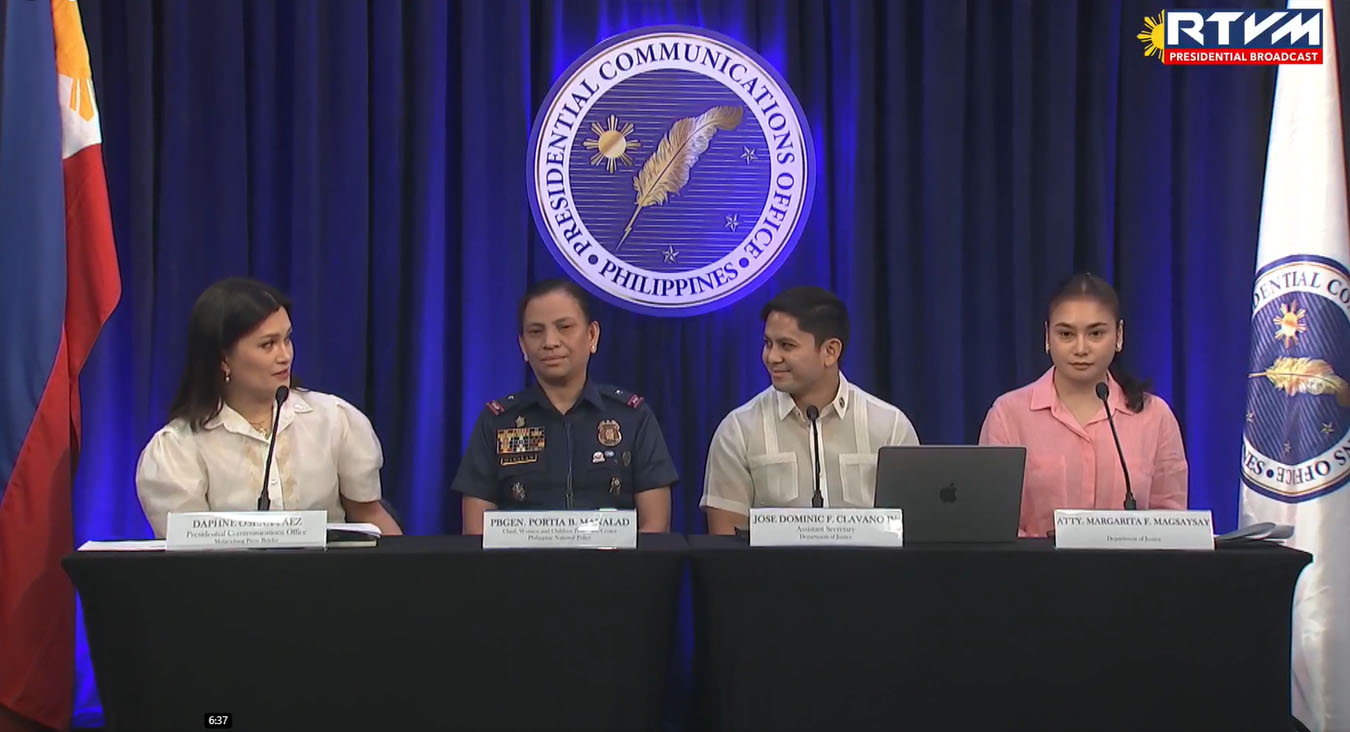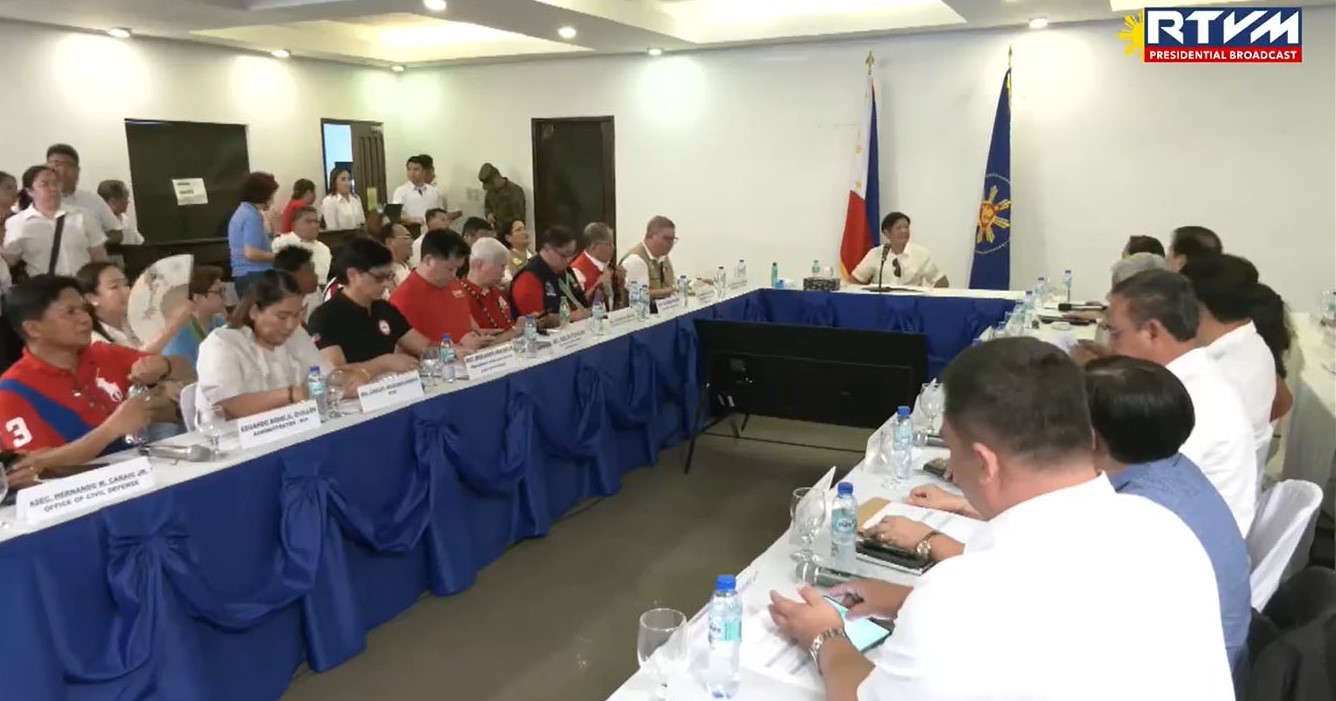April 28, 2015 – News Releases
 |
| 28 April 2015 |
|
|
|
| President Aquino saddened by Indonesia’s decision to push through with Veloso’s execution |
| (LANGKAWI, Malaysia) President Benigno S. Aquino III is saddened by Indonesia’s decision to push through with the execution of convicted Filipina drug mule Mary Jane Veloso, Communication Secretary Herminio Coloma, Jr. said Monday night.Coloma issued the statement upon being informed that the Indonesian Supreme Court has again denied the Philippine government’s second request for judicial review, rendering all the last-ditch efforts made by its officials — including President Aquino –futile.
President Aquino personally appealed Veloso’s case anew to his Indonesian counterpart Joko Widodo when they met on the sidelines of the 26th Association of Southeast Asian Nations (ASEAN) Summit held Monday morning in Kuala Lumpur. In that meeting, President Aquino asked for “humanitarian consideration” for the 30-year old Filipina, who was apparently duped into being an unwitting carrier of illegal drugs by her recruiter. Coloma said the President was of the impression that his Indonesian counterpart was “sympathetic” to Veloso’s plight and that he would consult their Attorney General on the legal issues of her case. The succeeding development, however, did not favor the Philippines as Indonesia’s high court found no basis to reconsider the death sentence that was meted out against the Filipina. “Following the meeting this morning between the two Presidents, President Widodo this evening instructed his Foreign Minister to convey to the Philippine Secretary of Foreign Affairs the final view of the Indonesian Attorney General that there is no basis to reconsider the death sentence; that the execution will need to be enforced,” Coloma said. “The President was saddened upon learning of the feedback from Jakarta on this morning’s meeting. He has instructed the Philippine ambassador in Indonesia to communicate with Mary Jane and find out what may be done to address her concerns for her family,” he added. The government has carried out heightened efforts to help Veloso since the time of her arrest in 2010. The Department of Foreign Affairs has provided her legal assistance and has been actively monitoring the progress of her case. “When the Indonesian Supreme Court imposed the death sentence in May 2011, President Aquino wrote then President Susilo Bambang Yudhoyono requesting clemency for Ms. Veloso, thereby securing a deferral of the implementation of the sentence for three years,” Coloma said. Foreign Affairs Secretary Albert del Rosario was even dispatched to Indonesia to personally meet with Veloso and some Indonesian officials. Vice President Jejomar Binay also conveyed a letter of appeal from the President through his counterpart. Veloso has been scheduled to face death by firing squad on Tuesday in the island prison of Nusa Kambangan, along with the infamous ‘Bali Nine,’ an Australian group also caught smuggling heroin into Indonesia. Coloma said the government remains determined to prevent a recurrence of such situation by intensifying information and education efforts among Filipinos traveling and working overseas. PND (hdc) |
|
|
| President Aquino urges ASEAN to keep playing a positive role in resolving regional disputes |
| (LANGKAWI, Malaysia) President Benigno S. Aquino III on Monday urged members of the Association of Southeast Asian Nations (ASEAN) to continue playing a positive role in resolving territorial conflicts in the region.In his intervention during the 26th ASEAN Leaders’ Retreat at the Langkawi International Convention Center, President Aquino underscored the importance of promoting regional peace and stability with a “security architecture built on the primacy of the rule of law”.
This is in relation to China’s illegal expansion in the West Philippine Sea (South China Sea), which is causing major environmental damage, and affecting the livelihood and food security of people living in the area’s coastal states. The loss and damage of hundreds of acres of coral reefs in the Spratly islands alone are estimated to cost the fisheries sectors in the littoral states at least US$100 million per year, President Aquino told his ASEAN counterparts. The Philippines has opted to maintain a diplomatic approach in handling the issue but needs strong backing from the ASEAN as China has kept on refusing to participate in a rules-based dispute settlement through international arbitration. “For many years, ASEAN has tried to fully implement the 2002 ASEAN-China Declaration on the Conduct of Parties in the South China Sea or DOC and to negotiate a binding Code of Conduct in the South China Sea or COC,” President Aquino said. “Unfortunately, the massive reclamation activities in the area undermine the relevance of both the DOC and of any eventual COC. This is a challenge to ASEAN centrality and to our capacity to shape the future of our own region,” he added. “ASEAN as a whole must continue to play a positive role in resolving this regional problem, which is multilateral in nature and therefore not resolvable through purely bilateral solutions,” President Aquino said. He stressed that it is incumbent upon all ASEAN member states to “collectively speak with one voice” on this issue. “All our efforts at regional community-building aim to promote and protect the future well-being of our peoples, and this can only be done in a secure and stable environment. If we continue to work shoulder-to-shoulder, I am confident our vision of an integrated ASEAN Community that is people-oriented, people-centered, and people-driven, is within reach,” the President said. President Aquino travelled to this archipelagic Malaysian island from Kuala Lumpur on Monday afternoon for the continuation of the 26th ASEAN Summit. He is scheduled to attend the 11th Brunei-Indonesia-Malaysia-Philippines East ASEAN Growth Area Summit here Tuesday before heading back to Manila. PND (hdc) |
|
|
| President Aquino details last-ditch attempt to save Veloso’s life |
| (LANGKAWI, Malaysia) President Benigno S. Aquino III on Tuesday morning detailed the last-ditch effort he undertook to appeal the case of convicted Filipina drug mule Mary Jane Veloso, who was already scheduled to face execution in Indonesia. President Aquino played the ‘dying person’s declaration’ card and made a phone call to Indonesian Foreign Affairs Minister Retno Marsudi to propose the idea of turning Veloso into a ‘primary witness’ that could help their government apprehend the ‘bigger fish’ behind Jakarta’s drug problem.
“Ang interes ng Indonesia is the drug issue, ‘di ba? So if this person can help uncover this drug syndicate, and it is of value to them, we can help, ‘di ba para bang extend her life at the very least. That’s the hope,” President Aquino told members of the Philippine media delegation at Four Points Hotel here. President Aquino said it is important for the Indonesian government to keep the 30-year old Filipina alive if it is interested in taking down the African drug syndicate that has been trying to penetrate the Indonesian market. “Kung ang habol is to solve the drug problem, there is a syndicate that targets Indonesia, her help in identifying all of these people involved can potentially help the Indonesians also with their drug problem,” he said. President Aquino said Veloso might still have a chance to get a possible ‘reprieve’ from the Indonesian government now that she has decided to file a complaint against her illegal recruiters who duped her into smuggling 2.6 kilograms of heroin. The opportunity presents itself as the only ‘window’ the Philippine government can capitalize on to serve its interests as well as that of Indonesia’s, given the latter’s stern laws against illegal drug trafficking. Pressed to explain why this particular theory was only brought up now, President Aquino said it was because of Veloso’s initial reluctance to reveal important details on the identity of her recruiters, probably out of fear. “Of course, when I was talking to the Foreign Minister, they were asking the lateness of this suggestion, and I tried to explain as best as possible that all of these things have come to our knowledge—these particular details—only in the last few days, and some of these new avenues happened just today, especially the idea of ‘Isn’t it better to get the drug syndicate itself rather than the person who was used as a mule?’” he explained. The President said Veloso’s testimony has to be reduced to an affidavit and must be perpetuated for it to be rendered admissible in court. “She does present an opportunity right now to be able to uncover all the participants and start the process of bringing them to the bars of justice. But absent her, that becomes very difficult to cut an impossible proposition,” he said. On Monday, President Aquino personally appealed Veloso’s case for the second time to his Indonesian counterpart, President Joko Widodo, when they met on the sidelines of the 26th Association of Southeast Asian Nations (ASEAN) Summit in Kuala Lumpur. However, nothing significant developed in that particular meeting, as the Indonesian Supreme Court rejected anew Manila’s appeal for judicial review of Veloso’s case. President Aquino admitted he was saddened by this development, but it apparently did not shatter his hopes to come up with other possible solutions, even at the last minute, to save Veloso’s life. “I’ve directed the Secretary of Foreign Affairs to ensure that we get information as to the response to our proposal. And then can I stress? We have very, very good relations with Indonesia… I’m sure they are interested in maintaining very good relations with us and they will give a fair hearing to this proposal of ours. Now, whether or not they will subscribe to our idea that it’s important to keep her to be able to testify against the bigger fish, will be subject to their national interest,” he said. PND (hdc) |
|
|
| President Aquino wants Pacquiao to consider retirement after Mayweather fight |
| (LANGKAWI, Malaysia) President Benigno S. Aquino III would like Sarangani Representative Manny Pacquiao to seriously consider retiring from boxing after his upcoming fight with Floyd Mayweather, Jr.
The Chief Executive made the statement on Tuesday during an interview with members of the Philippine media delegation covering his participation in the recently concluded 26th Association of Southeast Asian Nations (ASEAN) Summit here. “I’m very confident that he will do our countrymen proud as he has always done. Of course, I go back to my perpetual message, continued fighting in the ring does not promote good health,” President Aquino said when asked to share his thoughts on the forthcoming fight. He cited the case of legendary heavyweight fighter Muhammad Ali, who was eventually diagnosed with Parkinson’s disease after years of enjoying a triumphant boxing career. “Palagay ko, hindi naman niya hinihingi ang payo ko, pero sa akin, sa isang Pilipino na humahanga kay Manny Pacquiao… Marami ka nang nagawa. Siguro naman, dapat ulitin ko ang paalala ko… na huwag mo nang pasukan ang unnecessary risks, kung pwede,” President Aquino said. He said Pacquiao’s bout against Mayweather may already be considered as his ‘crowning glory’ that he could definitely choose to spend more time with his family thereafter. The Pacquiao-Mayweather boxing match is happening on May 2 (May 3 in Manila) at the MGM Grand in Las Vegas, Nevada. It is considered as one of the most highly anticipated sporting events of the year. President Aquino said he plans to watch the fight via delayed television broadcast at the comfort of his home — after probably receiving text messages informing him of Pacquiao’s expected victory. PND (hdc) |
|
|
| ASEAN leaders vow to promote moderation in maintaining regional peace and stability |
| (LANGKAWI, Malaysia) President Benigno S. Aquino III and other leaders of the Association of Southeast Asian Nations (ASEAN) have vowed to further promote moderation and enhance their cooperation to maintain regional peace and stability.
Members of the regional grouping gathered from April 26 to 28 for the 26th ASEAN Summit in Kuala Lumpur and Langkawi. At the end of the summit, the leaders adopted the ‘Langkawi Declaration on the Global Movement of Moderates.’ Under the declaration, the leaders vowed to “uphold the rule of law in the conduct of relations among states, including in the peaceful resolution of disputes in accordance with universally recognized principles of international law.” Also contained in the declaration is the commitment of Southeast Asian leaders to strengthen ASEAN unity and solidarity and its central role in maintaining and promoting peace, stability and prosperity in the region. The leaders also agreed to “enhance ASEAN’s common agenda for peace and prosperity, which promotes political and social stability, inclusive political processes; sustainable growth which provides opportunities for all and upholds dignity; and social justice with emphasis on mutual respect, balance and moderation”. Moreover, the declaration stated that the ASEAN member states would “further enhance cooperation within various ASEAN-led mechanisms, aiming to drown out the voices of extremism.” They also agreed to conduct activities that further promote moderation, such as organizing outreach programs, interfaith and cross-cultural dialogues in various formats at the national, regional and international levels. The ASEAN will continue to build on initiatives to share best practices on counter-radicalization and tackle the roots of extremism, and encourage more enhanced information-sharing on best practices on moderation among ASEAN member states. They also committed to promote education as “an effective means of instilling respect for life, for diversity and the values of moderation, tolerance, non-violence and mutual understanding towards preventing the spread of violent extremism and addressing its root causes.” The ASEAN leaders pledged to collaborate with dialogue partners, international organizations and other relevant stakeholders to conduct seminars and workshops for the sharing of best practices that support the promotion of moderation. PND (co) |
|
|
| ASEAN member states commit to strengthen resilience by reducing disaster and climate-related risks |
| (LANGKAWI, Malaysia) Leaders of the member states of the Association of Southeast Asian Nations (ASEAN) concluded their 26th summit here with a commitment to forge a more resilient future by reducing existing disaster and climate-related risks.
President Benigno S. Aquino III and nine other leaders adopted the ‘Declaration on Institutionalizing the Resilience of ASEAN and its Communities and Peoples to Disasters and Climate Change’ at the end of this year’s summit. The declaration underlined the importance of producing coherence, consistency and alignment across the pillars and relevant sectors of the ASEAN by systematically mainstreaming disaster risk management and climate change adaptation, as well as the need for cross-pillar and cross-sectoral collaboration. Under the declaration, the leaders will further institutionalize disaster risk management and climate change adaptation at the national and local levels by harmonizing them with existing and new policy and legal frameworks. The ASEAN leaders will also urge all stakeholders to participate in the planning and implementation of the institutionalization of disaster risk management and climate change adaptation at the local, national and regional levels. They will allocate resources to strengthen disaster preparedness for effective response and effectively support resilient recovery and rehabilitation. President Aquino and his fellow Southeast Asian leaders also agreed to enhance cooperation and collaboration among the ASEAN member states for the implementation of the declaration. The ASEAN Committee on Disaster Management (ACDM) has been assigned as the focal point for cross-sectoral cooperation on resilence building at the regional level, with the support of other relevant sectoral bodies. PND (co) |
|
|
| ASEAN says reclamation activities in South China Sea might undermine regional peace, security and stability |
| (LANGKAWI, Malaysia) Leaders of member states of the Association of Southeast Asian Nations (ASEAN) expressed “serious concern” over the land reclamation being undertaken in disputed areas of the South China Sea, saying the activity “may undermine peace, security and stability” in the region.
This was the statement released on Tuesday by the 10-member regional bloc at the conclusion of the 26th ASEAN Summit, which was chaired by Malaysia. At the summit, President Benigno S. Aquino III and nine other leaders of the grouping discussed regional and international issues of common interest and concern, such as the South China Sea issue. “We share the serious concerns expressed by some leaders on the land reclamation being undertaken in the South China Sea, which has eroded trust and confidence and may undermine peace, security and stability in the South China Sea,” said the ASEAN chairman’s statement. The statement said foreign ministers of the ASEAN member states have been instructed to “urgently address this matter constructively, including under the various ASEAN frameworks”. The Southeast Asian leaders also reaffirmed the importance of maintaining peace, stability, security and freedom of navigation and overflight in the South China Sea. They also emphasized the need for all parties to ensure the full and effective implementation of the Declaration on the Conduct of Parties in the South China Sea (DOC). The ASEAN urged that consultations on the Code of Conduct in the South China Sea (COC) be intensified to ensure the expeditious establishment of an effective COC. All parties concerned were urged to resolve their differences and disputes through peaceful means, in accordance with international law, including the 1982 United Nations Convention on the Law of the Sea. The Philippines has been pushing for the full and effective implementation of the DOC and the early conclusion of a legally binding COC to properly manage tensions in the South China Sea. In his intervention during the Summit’s Plenary Session in Kuala Lumpur on Monday, President Aquino called for a common stand to protect freedom of navigation and commerce in the South China Sea, especially in light of China’s reclamation activities. The ASEAN, established in August 1967, consists of 10 member states: Brunei Darussalam, Cambodia, Indonesia, Laos, Malaysia, Myanmar, Singapore, Thailand, Vietnam, and the Philippines. PND (co) |
|
|
| ASEAN talks on South China Sea dispute yield ‘substantial progress, says President Aquino |
| (LANKAWI, Malaysia) The discussions on the conflicting territorial claims in the South China Sea (West Philippines Sea) within the 10-member Association of Southeast Asian Nations (ASEAN) have yielded “substantial progress,” President Benigno S. Aquino III said.
President Aquino, during the media interview here on Tuesday, said other ASEAN leaders voicing concern about the ongoing territorial disputes between China and its neighboring countries in the South China Sea is a ‘healthy development.’” Over the weekend, President Aquino flew to Malaysia to join his Southeast Asian counterparts in the 26th ASEAN Summit, which was held in Kuala Lumpur and Langkawi from April 26 to 28. The 10-nation bloc, in a statement released Tuesday, expressed serious concern over the recent developments in the South China Sea, particularly on the land reclamation activities being undertaken in the disputed area. China is asserting ownership of almost the whole South China Sea. The Philippines, Brunei Darussalam, Malaysia and Vietnam, as well as Taiwan, also have overlapping claims in the disputed area. “I think there was a very, very substantial progress from the time that we first started—or at least I first started—participating in discussions with regards to the issues of the South China Sea/West Philippine Sea,” the President said. During an interview with the Philippine media delegation covering this year’s summit in Malaysia, President Aquino reiterated that the teritorial dispute is a global issue since 40 percent of world trade passes through the South China Sea. “This is the common waterway for ASEAN to be dealing with each other to a large degree, let alone the rest of the world, where at least 40 percent of world trade has to traverse this water,” he said. “‘Yung formulation of the COC was dormant from at least 2002 to 2012 when we raised the matter up in Phnom Penh, and there had been, I think, two or three preliminary talks to the formal talks, and before there was none. We are making progress, and hopefully, we will make parang more progress at a faster rate,” he added. President Aquino has been pushing for the full and effective implementation of the Declaration on the Conduct of Parties in the South China Sea, and the early conclusion of a legally-binding Code of Conduct in the South China Sea. ASEAN, established in August 1967, is made up of Brunei Darrusalam, Cambodia, Indonesia, Laos, Malaysia, Myanmar, Singapore, Thailand, Vietnam and the Philippines. PND (co) |
|
|
| Southeast Asian leaders adopts declaration on people-centered ASEAN |
| (LANGKAWI, Malaysia) The leaders of the Association of Southeast Asian Nations (ASEAN), including President Benigno S. Aquino III, on Monday committed to continue establishing a people-oriented, people-centered and rules-based ASEAN community.
This commitment was contained in the ‘Kuala Lumpur Declaration on a People-Oriented, People-Centered ASEAN’ that President Aquino and other Southeast Asian leaders adopted at the conclusion of the two-day 26th ASEAN Summit. This year’s summit was themed “Our People, Our Community, Our Vision.” Under the declaration, leaders agreed to continue establishing a people-oriented, people-centered and rules-based ASEAN Community “where all people, stakeholders and sectors of society can contribute to and enjoy the benefits from a more integrated and connected Community encompassing enhanced cooperation in the political-security, economic and socio-cultural pillars for sustainable, equitable and inclusive development.” The ASEAN Community comprises three pillars: ASEAN Political-Security Community, ASEAN Economic Community, and ASEAN Socio-Cultural Community. On political security front, the 10-member grouping agreed to continue to promote the principles of democracy, rule of law and good governance, social justice, as well as to promote and protect human rights and respect for fundamental freedoms. ASEAN leaders also pledged to “further enhance systems and legal infrastructure to maintain a peaceful and harmonious environment, as well as engagement between legislative and executive branches in the process of the establishment of a rules-based ASEAN community.” Also, the leaders agreed to continue to preserve Southeast Asia as a peaceful and prosperous region, free of conflict, nuclear weapons and other weapons of mass destruction. On the economic front, ASEAN vowed to “promote an integrated, stable, prosperous and highly cohesive regional economy, which encompasses all sectors of society, as well as encourage the participation of women, the elderly and youth in building a competitive, innovative and dynamic ASEAN.” Also, they agreed to promote the development of small and medium enterprises as a driving force for the ASEAN Economic Community. They will also continue capacity building initiatives to enable all ASEAN economies to fully participate in the integration efforts. On the socio-cultural front, the 10-member grouping committed to promote and protect the rights of women, children, youth and elderly persons, as well as those of migrant workers, indigenous peoples, persons with disabilities, ethnic minority groups, people in vulnerable situations and marginalized groups and promote their interests and welfare in ASEAN’s future agenda. They will also “alleviate poverty and narrow development gap by increasing access to basic needs and work towards achieving adequate standards of living and thereby contribute to the ASEAN Community.” ASEAN also agreed to “promote regional resilience by addressing socio-cultural and socio-economic issues that may result from climate change and other environmental impacts.” PND (co) |
|
|


